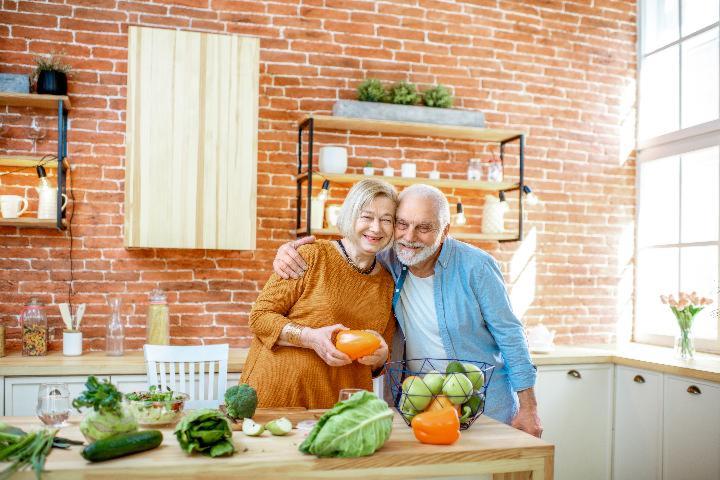Eating a healthy diet is of great importance and it is instilled in us from the day we are born. However, to the elderly, healthy nutrition is a mandatory requirement to sustain a quality life. Their nutrition entails various special ingredients and must be adhered to consistently during that stage of their lives.
The significance of food is paramount to everyone. However, children and elderly people need to take more care of their nutrition because their diet is critical to their health and development. This does not mean that people in other stages of life should not pay proper attention to their diet. What you eat today will play a role during your declining years.
Nutrition for Aging People
What is the best food for the elderly? This is a question that people ask not only because they live with their grandparents or other elderly relatives, but also because at some point in time, they will be elderly too. Elderly nutritional needs keep changing. When you begin to enter into old age, it is important to have a balanced diet where you drastically reduce your intake of calories and increase the intake of proteins, vitamins, fibres. Furthermore, their diet should contain iron, calcium, and other vital minerals for a healthy life.
Eating a healthy diet can help to minimise the risk of contracting diseases associated with old age such as heart, arterial, hypertension just to name a few. Besides including proteins, minerals, fats, vitamins, and carbohydrates in elderly people's diet, it is crucial to intake lots of water daily.
When a person ages, there are numerous changes that their bodies undergo. These include social and psychological changes which significantly impact the nutritional status of elderly people which in turn affects their eating patterns. For instance, salivation is affected, teeth are lost, and a person experiences difficulty in chewing food properly.
These people, most probably, could be taking medication which could affect their nutrient absorption stage. In addition, the person's senses are weakening which means that gradually, their interest in food will decline. Combine that with the gradual loss of muscle mass which is attributed to decreased demand for energy. When you take into account all these changes and conditions, the risk of an older person increases significantly if he/she does not get a healthy diet.
Nutritional Content as a Person Ages
How many calories do the elderly need? When a person hits their 70s, their diet must be reviewed and modified depending on their biological requirements and the changing of life. Nutritional needs of the early depends on a person. However, to achieve a good, healthy life after the 50s, your diet should highly consist of fish, skimmed dairy, eggs, poultry, whole grains, legumes, and nuts. More so, more than half of the proteins in their diet should be from animals and vegetables.
Those caring for elderly people ought to understand the various diets of elderly people while considering numerous fundamental aspects to come up with the best possible diet for them. Proteins and fats certainly should be included but in the right quantities. For instance, fats should not entail more than 25% of the diet. Special attention should be paid when cooking to prevent the consumption of fatty foods. Proteins should consist of 20% of a person's diet. Fish consumption and skimmed dairy products are food elderly like to eat. On the other hand, we recommend that you significantly reduce the intake of meat.
Fruits, pasta, and cereals should consist of 55% of the diet. These include foods rich in vitamins and minerals such as potatoes, rice, nuts, and vegetables.
Fruits and vegetables
An elderly person's diet should consist of at least two servings of vegetables in a day and a minimum of three servings of fruits between meals. To senior citizens, intake of vegetables is essential because it offers them the required nutrients that improve their digestion process and maintain a healthy, quality life.
To enhance the chewing process especially when preparing food for elderly with no teeth, the vegetables should be prepared in form of a puree, while the fruits can be naturally eaten if they are soft and well-ripe. Otherwise, you can make fruit juices or smoothies without adding processed sugars during the preparation process.

High intake of fibre and water
Over the years, the digestion process and intestinal transit will begin to slow down which means that the risk of constipation and associated problems increases significantly. That said, it is vital to intake between 25 grams and 30 grams of soluble and insoluble fibre daily. The quantity of water decreases during old age which means that you should take at least two litres of water, juices, and broths daily.
Tips of Nutrition for the Elderly
To achieve better digestion, eat often, but in less quantities.
Empty calories from foods and drinks such as soft drinks, alcohol, candy, and chips must be avoided.
Seek professional home care
Choose fats in your diet appropriately.
To sustain a healthy lifestyle, stay active daily – this builds strength of bones, muscles, and the heart.





